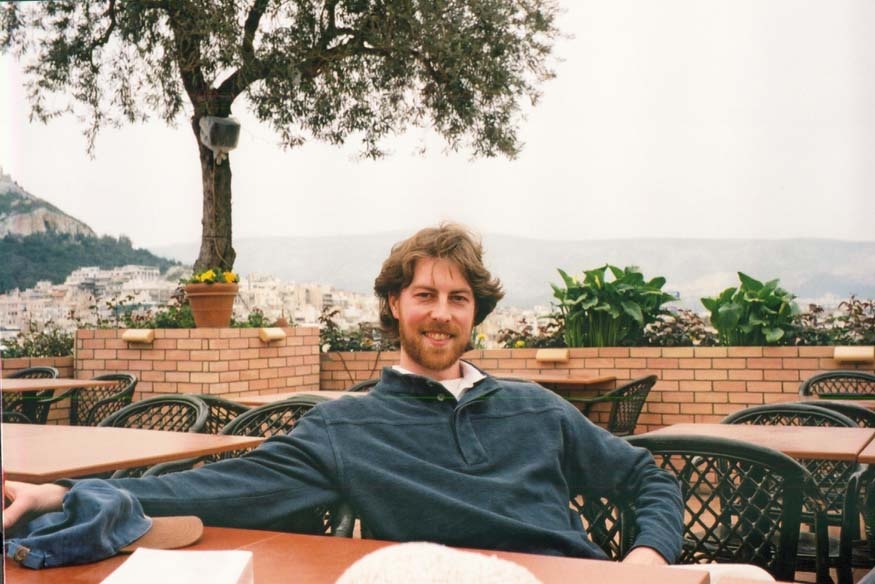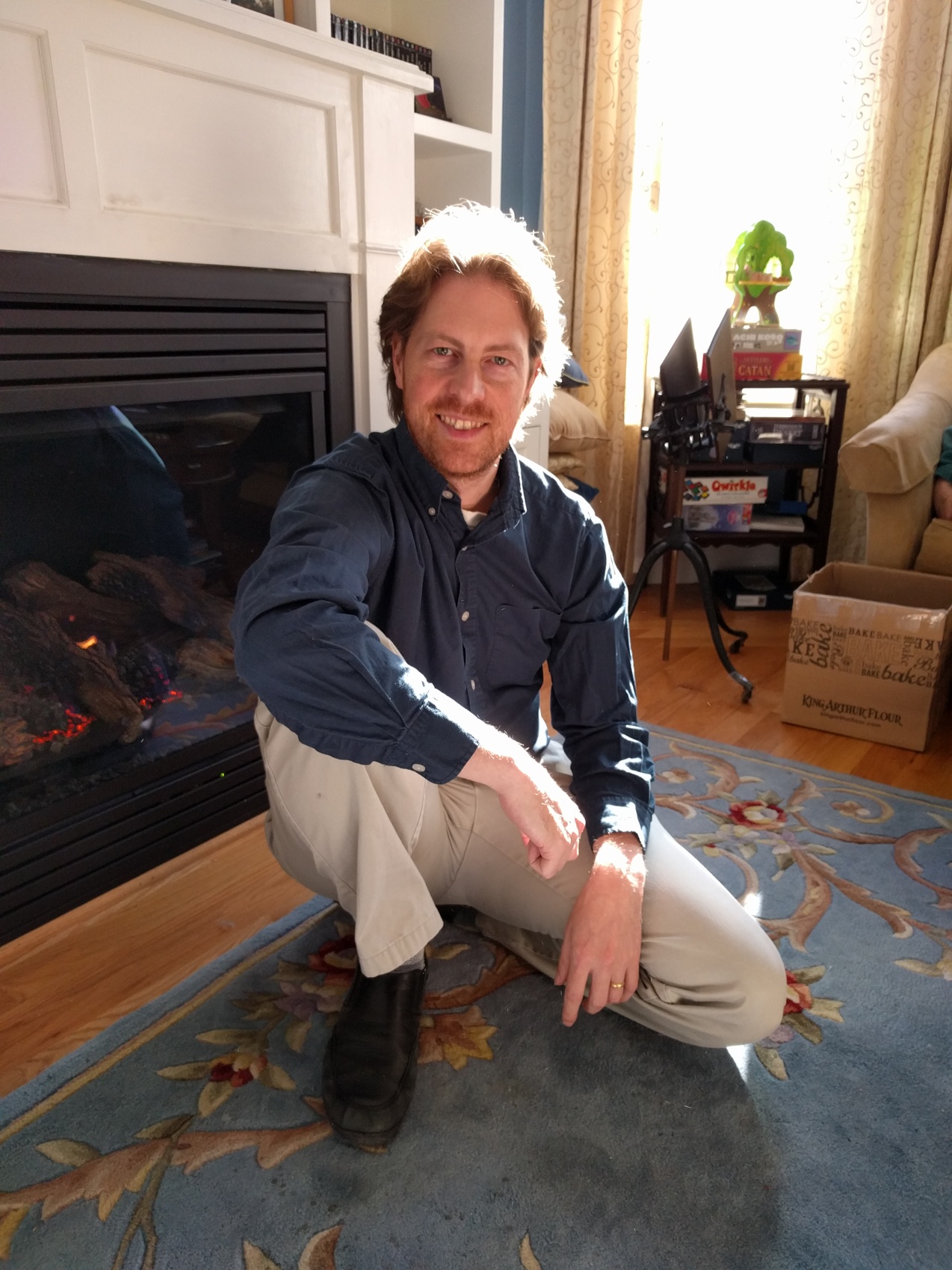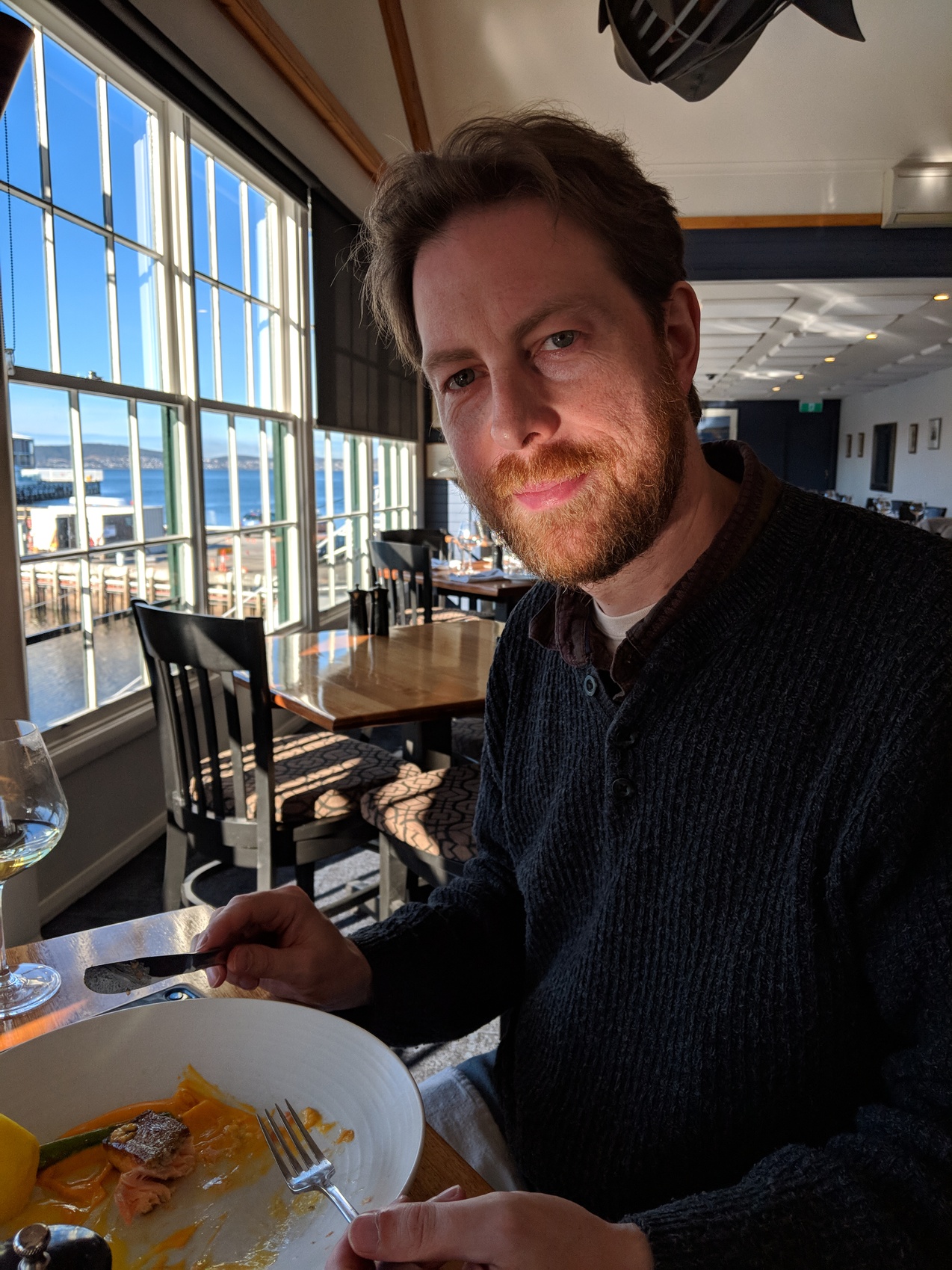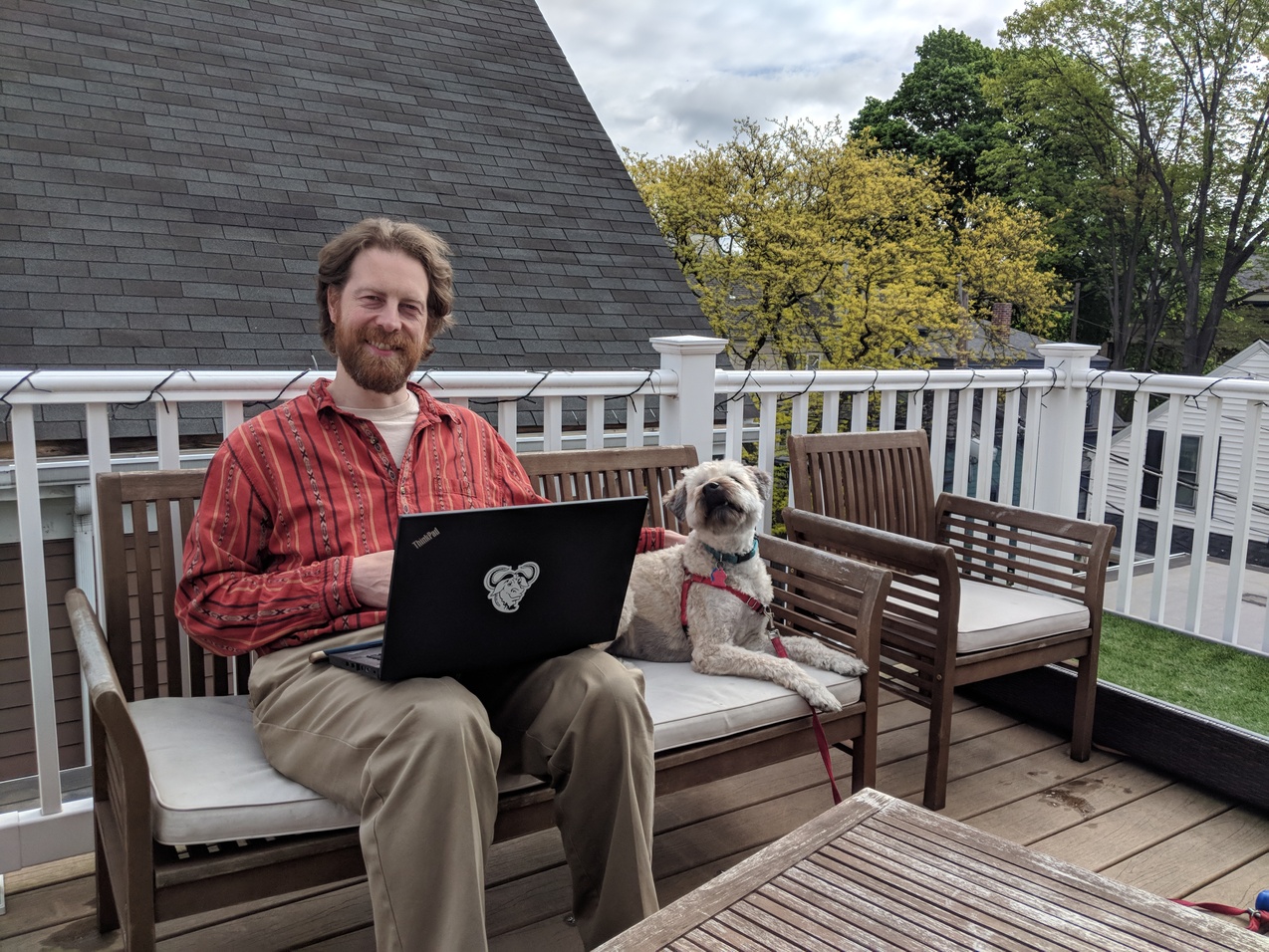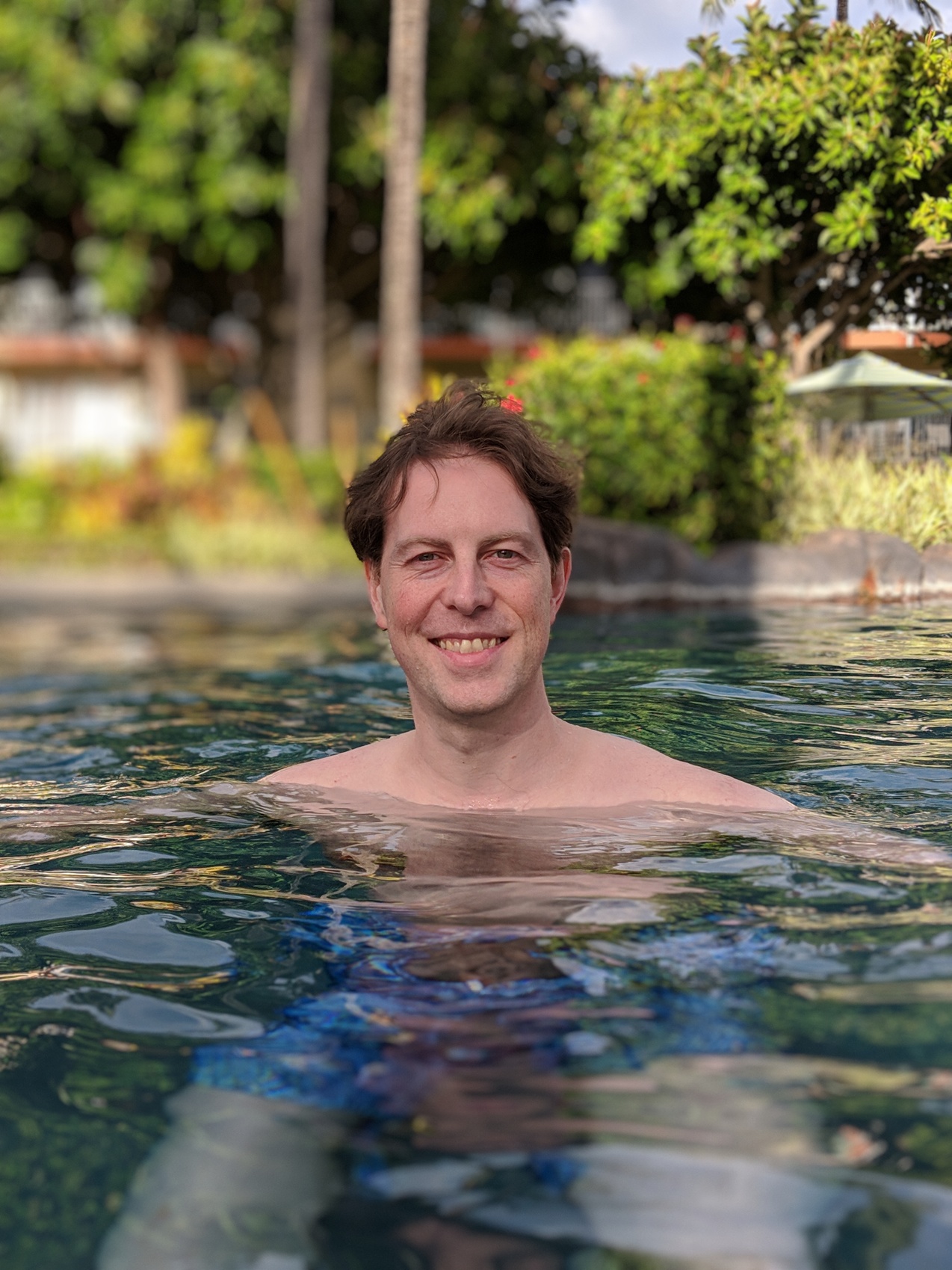Storyworth: Favorite Plays
Apr. 16th, 2021 03:13 pmWhat are your favorite plays?
In general, my favorite plays are very wordy and witty, with the humor arising from the cleverness of the lines. I enjoy creative staging—not necessarily spectacle—and engaging characters are a must. I tend to prefer comedies, or dramas with a good balance of humor, to serious dramas, mostly because I hate to see people making stupid choices, or being mean to one another, but some of my favorites are not comedies and I don’t generally like broad humor. I like a happy ending and a clear statement of purpose. Perhaps unsurprisingly, many of my favorites are shows that I’ve directed.
Possibly my favorite show of all time is Mary Zimmerman’s “Metamorphoses”. I first saw it at Berkeley Rep in 1999 and it haunted me for years. I saw a student production at Harvard in 2007, which rekindled my dream of directing it with Theatre@First, but it was not until I saw a revival at Arena Stage in Washington, DC in 2013 that I began to really pursue that dream. The biggest challenge is that the show was conceived to be staged in and around a large, shallow pool of water—not something feasible in any of the spaces Theatre@First regularly uses. I began to think that the water could be represented by fabric and from there was able to come up with a dry staging that still makes me very proud.
The play is a set of Greek myths excerpted from Ovid and woven together to create a lyrical exploration of love and its positive and negative expressions. To quote a review of the Berkeley Rep revival in 2019, “‘Metamorphoses’ has a breathtaking aesthetic, with beauty, grace, poetry, and humor. It is a rare and unforgettable theatrical experience that should not be missed.” Even as a director, I was unable to watch a run of the show without laughing out loud and weeping quietly. That kind of connection, on the emotional, intellectual, and aesthetic levels, is a rare joy.
Another of the plays I first saw at Berkeley Rep and later brought to Theatre@First is Lillian Groag’s sadly overlooked play, “The Magic Fire”. A lyrical tapestry of history, memory, and music, the play tells the story of one family’s decision to leave Argentina as fascism overtook their country. When I proposed the play I was mostly interested in the main character, presented simultaneously at age 8 (though we stretched it to 10 so that Alice could play the role) and 30, sorting through her memories of a confusing, tumultuous time. But by the time we staged it in 2017 it had become sadly relevant. Looking back at photos of that production makes me proud and wistful for a show that in many ways could only have worked the way that it did just at that moment in time, which seems fitting for the play itself.
My favorite Shakespearean play is “Much Ado About Nothing”. It includes one of my all-time favorite couples—Beatrice and Benedick—and uses some of the same plot twists as “Romeo and Juliet” to a much more satisfying conclusion. I love the language and the festive nature of the show and the questions of appearances and disguise that run throughout the script. Directing the show in 2008 is one of my favorite memories from the early years of Theatre@First.
One of my favorites that I have not yet had the opportunity to direct is “The Importance of Being Earnest”. That one makes me giggle no matter how many times I’ve heard its jokes. It is overly long and somewhat over-complicated, but in the right hands it is a charming trifle with profound undertones that miraculously transcends the very specific nature of its setting and targets. I can’t decide if I’m more interested in directing it, or in playing Lady Bracknell, but either way I hope someday to do it.
I was very surprised to find that I love “Noises Off”. I am not usually a fan of broad farce and this is one of the broadest. The way that playwright Michael Frayn builds his gags from plausible to over-the-top absurdity is genius and the backstage drama is hilarious from start to finish. When Jason and I saw it in London, a critic’s verdict “Life threateningly funny!” hung from the marquee outside and Jason commented that it seemed excessive, particularly for a British reviewer. At one point during the show (I believe it was the cactus-needle extraction bit) Jason was laughing so hard that he curled up in his seat beside me and I was pounding on his back like a table as I guffawed. Once the moment had passed, I whispered an apology. “Sorry about that.” “About what?” “For hitting you!” “You hit me?” We agreed that dying of laughter was well within the risks of that show.
Even more surprising is that the same playwright, Michael Frayn, wrote “Copenhagen,” a beautiful puzzle box of a show about Heisenberg’s uncertainty principle. It’s a very serious three-hander about an unknowable conversation between Heisenberg and Niels Bohr during World War II. With the right actors in the roles what could be a dry philosophical debate becomes a gripping, passionately intellectual wrestling match for the soul of a great mind. That the ending is uncertain without leaving the audience unsatisfied is a triumph of playwrighting.
Another candidate for my favorite play is Tom Stoppard’s “Rosencrantz and Guildenstern Are Dead,” which I’ve now directed twice. The playfulness of the script is a joy and the existential comedy appeals to my sense of humor. No matter how many times I see it, or read it, I always find something new, and directing it has taught me a great deal of what I know about that process. I’m also deeply fond of his “Arcadia,” though I find it harder to communicate to an audience, but I hope someday to direct that, as well. Stoppard’s essential thesis, that history and meaning are unknowable to those who come after, is very attractive to me and a thread I enjoy tracking through all of his work.
One of the most personally resonant plays for me is “The Margaret Ghost,” by Carole Braverman, based on the life of Margaret Fuller. I first saw it performed at Radcliff in 1985, when a friend of my sister was stage managing. For a sixteen year old girl, the story of a woman who was too smart to be attractive to the men of her milieu, yet finds love and makes her mark on history, was deeply moving and inspiring. Twenty years later, having recently founded a theatre company of my own, I was able to track down the playwright and the never-published script and had the joy of bringing it to audiences not once, but twice, as we were invited to revive our 2006 production in 2010 for the bicentennial of Fuller’s birth. The characters and language are fantastic and the arguments over how to live fully as a woman are still gripping today. During the pandemic the cast reunited to do an online reading and I found myself enchanted by it once more and wishing that it could find a wider audience.
Looking back at this list, what ties them together for me is the theme of self-awareness and the struggle to figure out the purpose and pattern of one's life. Having the opportunity to live within them, teasing out their nuances and determining the meanings that matter most, is both a pleasure and a source of many of my most treasured memories. The play really is the thing!
In general, my favorite plays are very wordy and witty, with the humor arising from the cleverness of the lines. I enjoy creative staging—not necessarily spectacle—and engaging characters are a must. I tend to prefer comedies, or dramas with a good balance of humor, to serious dramas, mostly because I hate to see people making stupid choices, or being mean to one another, but some of my favorites are not comedies and I don’t generally like broad humor. I like a happy ending and a clear statement of purpose. Perhaps unsurprisingly, many of my favorites are shows that I’ve directed.
Possibly my favorite show of all time is Mary Zimmerman’s “Metamorphoses”. I first saw it at Berkeley Rep in 1999 and it haunted me for years. I saw a student production at Harvard in 2007, which rekindled my dream of directing it with Theatre@First, but it was not until I saw a revival at Arena Stage in Washington, DC in 2013 that I began to really pursue that dream. The biggest challenge is that the show was conceived to be staged in and around a large, shallow pool of water—not something feasible in any of the spaces Theatre@First regularly uses. I began to think that the water could be represented by fabric and from there was able to come up with a dry staging that still makes me very proud.
The play is a set of Greek myths excerpted from Ovid and woven together to create a lyrical exploration of love and its positive and negative expressions. To quote a review of the Berkeley Rep revival in 2019, “‘Metamorphoses’ has a breathtaking aesthetic, with beauty, grace, poetry, and humor. It is a rare and unforgettable theatrical experience that should not be missed.” Even as a director, I was unable to watch a run of the show without laughing out loud and weeping quietly. That kind of connection, on the emotional, intellectual, and aesthetic levels, is a rare joy.
Another of the plays I first saw at Berkeley Rep and later brought to Theatre@First is Lillian Groag’s sadly overlooked play, “The Magic Fire”. A lyrical tapestry of history, memory, and music, the play tells the story of one family’s decision to leave Argentina as fascism overtook their country. When I proposed the play I was mostly interested in the main character, presented simultaneously at age 8 (though we stretched it to 10 so that Alice could play the role) and 30, sorting through her memories of a confusing, tumultuous time. But by the time we staged it in 2017 it had become sadly relevant. Looking back at photos of that production makes me proud and wistful for a show that in many ways could only have worked the way that it did just at that moment in time, which seems fitting for the play itself.
My favorite Shakespearean play is “Much Ado About Nothing”. It includes one of my all-time favorite couples—Beatrice and Benedick—and uses some of the same plot twists as “Romeo and Juliet” to a much more satisfying conclusion. I love the language and the festive nature of the show and the questions of appearances and disguise that run throughout the script. Directing the show in 2008 is one of my favorite memories from the early years of Theatre@First.
One of my favorites that I have not yet had the opportunity to direct is “The Importance of Being Earnest”. That one makes me giggle no matter how many times I’ve heard its jokes. It is overly long and somewhat over-complicated, but in the right hands it is a charming trifle with profound undertones that miraculously transcends the very specific nature of its setting and targets. I can’t decide if I’m more interested in directing it, or in playing Lady Bracknell, but either way I hope someday to do it.
I was very surprised to find that I love “Noises Off”. I am not usually a fan of broad farce and this is one of the broadest. The way that playwright Michael Frayn builds his gags from plausible to over-the-top absurdity is genius and the backstage drama is hilarious from start to finish. When Jason and I saw it in London, a critic’s verdict “Life threateningly funny!” hung from the marquee outside and Jason commented that it seemed excessive, particularly for a British reviewer. At one point during the show (I believe it was the cactus-needle extraction bit) Jason was laughing so hard that he curled up in his seat beside me and I was pounding on his back like a table as I guffawed. Once the moment had passed, I whispered an apology. “Sorry about that.” “About what?” “For hitting you!” “You hit me?” We agreed that dying of laughter was well within the risks of that show.
Even more surprising is that the same playwright, Michael Frayn, wrote “Copenhagen,” a beautiful puzzle box of a show about Heisenberg’s uncertainty principle. It’s a very serious three-hander about an unknowable conversation between Heisenberg and Niels Bohr during World War II. With the right actors in the roles what could be a dry philosophical debate becomes a gripping, passionately intellectual wrestling match for the soul of a great mind. That the ending is uncertain without leaving the audience unsatisfied is a triumph of playwrighting.
Another candidate for my favorite play is Tom Stoppard’s “Rosencrantz and Guildenstern Are Dead,” which I’ve now directed twice. The playfulness of the script is a joy and the existential comedy appeals to my sense of humor. No matter how many times I see it, or read it, I always find something new, and directing it has taught me a great deal of what I know about that process. I’m also deeply fond of his “Arcadia,” though I find it harder to communicate to an audience, but I hope someday to direct that, as well. Stoppard’s essential thesis, that history and meaning are unknowable to those who come after, is very attractive to me and a thread I enjoy tracking through all of his work.
One of the most personally resonant plays for me is “The Margaret Ghost,” by Carole Braverman, based on the life of Margaret Fuller. I first saw it performed at Radcliff in 1985, when a friend of my sister was stage managing. For a sixteen year old girl, the story of a woman who was too smart to be attractive to the men of her milieu, yet finds love and makes her mark on history, was deeply moving and inspiring. Twenty years later, having recently founded a theatre company of my own, I was able to track down the playwright and the never-published script and had the joy of bringing it to audiences not once, but twice, as we were invited to revive our 2006 production in 2010 for the bicentennial of Fuller’s birth. The characters and language are fantastic and the arguments over how to live fully as a woman are still gripping today. During the pandemic the cast reunited to do an online reading and I found myself enchanted by it once more and wishing that it could find a wider audience.
Looking back at this list, what ties them together for me is the theme of self-awareness and the struggle to figure out the purpose and pattern of one's life. Having the opportunity to live within them, teasing out their nuances and determining the meanings that matter most, is both a pleasure and a source of many of my most treasured memories. The play really is the thing!
